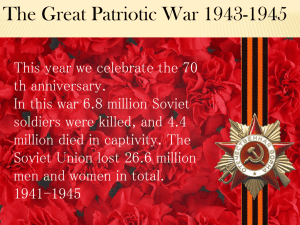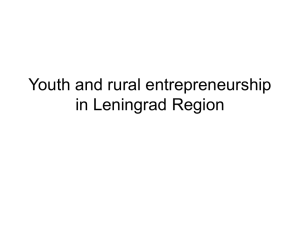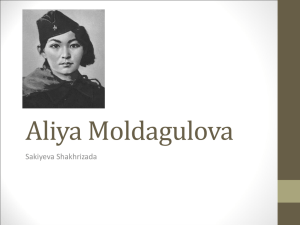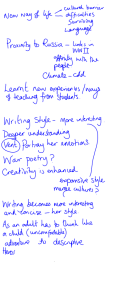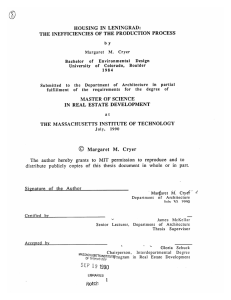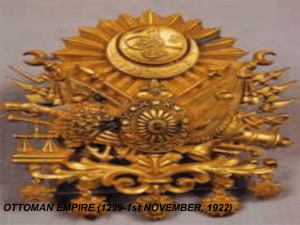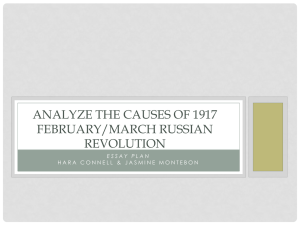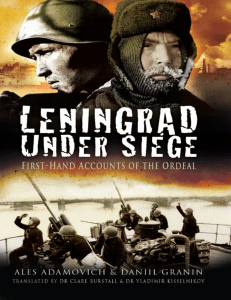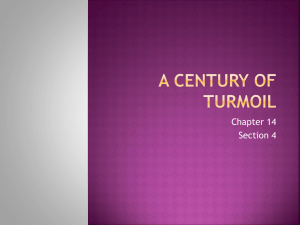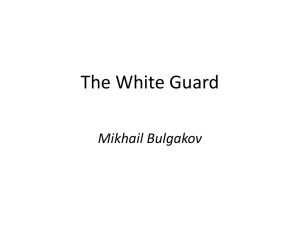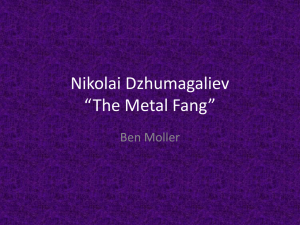Introduction PowerPoint to City of Thieves
advertisement
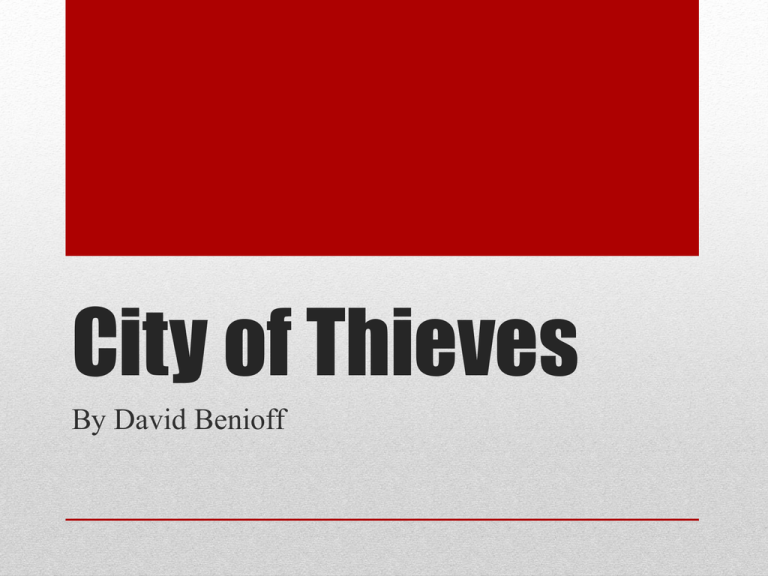
City of Thieves By David Benioff • Benioff is a Hollywood screenplay writer and novelist. • • • • Screen adaptation of The Kite Runner Troy X-men Origins: Wolverine The Game of Thrones • He wrote the book after a series of conversations with his grandfather. • His grandfather was born in Russia and survived World War II • He turned the interviews into City of Thieves David Benioff • • • • • Begins when Germany invades Poland in 1939 France and Great Britain declare war on Germany Russia made a pact to stay out of the war. However, in 1941, Germany invades Russia Fighting a war on two fronts has never been a smart idea – especially in winter! World War II World War II Map • Was originally built by Emperor Peter the Great as St. Petersburg • He wanted a port to Europe • He wanted a European city • Very cultural: ballet, opera, poetry, literary cafes • After the Russian Revolution, the city was renamed Leningrad • In 1992 it reverted to its original name. Leningrad • • • • • The city was virtually surrounded by the Germans The siege began on September 8, 1941 Most women and children were evacuated Life in the city was desperate: almost no food The siege did not end until January 27, 1944, almost 900 days later • It is estimated that 1.5 million people died • Aerial bombardment • Shelling • Starvation The Siege of Leningrad • A video by a Russian news agency commemorating the 70th anniversary of the Siege of Leningrad: • https://www.youtube.com/watch?v=qYKM2dvpxks Video • Lev Beniov: the protagonist • 17 years old. • His mother and brother have evacuated Leningrad. • His father was “disappeared” by the NKVD • Kolya: the sidekick • Nikolai Alexandrovich Vlasov • 20 years old • a deserter from the Red Army • Colonel Grechko: the catalyst • Gives Lev and Kolya a quest • He works for the NKVD, the secret police Characters • “Piter” is the nickname for Leningrad (from “St. Petersburg”) • “The Crosses” is a notorious Leningrad prison • The Kirov Apartment building, a huge block of flats, where Lev lives Settings • Kolya loves literature and music, so there are many allusions to famous pieces of Russian literature and music • • • • Eugene Onegin by Alexander Pushkin Dmitri Shostakovich, a famous pianist Leo Tolstoy (War and Peace, Anna Karenina) The Courtyard Hound, by Ushakovo (this may be a fictional author and novel) • José Raul Capablanca: a famous chess player from Cuba Allusions • • • - Russians always have three names Their Christian or given name (Nikolai) Their patronymic, derived from their father’s name Their family name Mikhail Romanovich Adamovich (Michael son of Robert McAdam “son of Adam”) - Ekaterina Kharalovna Estefanidesa Names in Russian • The patronymic is based on the father’s first name - ich is added to a for a male child (Alexandrovich) - Aevna/ovna is added for a female child (Alexandrovna) • It is considered very proper in Russian to address someone by their Christian name and their patronymic: • Nikolai Alexandrovich, kak zhivyosh? (How are you?) Patronymics • • • • • The last name is usually an adjective Thus, the woman’s name usually ends in –a or – ya E.g., Anna Arkadyevna Karenina Анна Аркадьевна Каренина Can you figure out what your full Russian name would be? The Last name • • • • Much of the language is raw and sexual Soldiers don’t speak in beautifully rhymed verse They are used to seeing horrible images Their speech is raw, sexual, direct, insulting Language Benioff, David. Wikpedia. Benioff, David, http://www.rsanews.com/craig-ferguson-choice-award-sarandon-greek/ “The Second World War: The European Theatre” http://olive-drab.com/od_history_ww2_maps.php “The Winter Palace on Palace Square in St. Petersburg” http://www.guildtravel.com/citybreaks/visa-freecruise-from-helsinki-to-st-petersburg/ The Siege of Leningrad. Wikipedia. “The Siege of Leningrad.” http://hommushistory.wordpress.com/2011/09/20/the-siege-of-leningrad/ “Diorama of the Siege of Leningrad” http://www.abc.net.au/radionational/programs/latenightlive/diorama-ofthe-siege-of-leningrad/3667584 “Nevsky Prospekt during the Siege of Leningrad.” http://www.learnnc.org/lp/pages/5970 “Soldiers of the Red Army.” http://bio.bwbs.de/bwbs_biografie/Siege_of_Leningrad_broken_B1144.html “Soviet Soldiers – Red Army – Leningrad Siege” http://farm3.static.flickr.com/2668/3935356298_f40447ac77.jpg Bibliography
